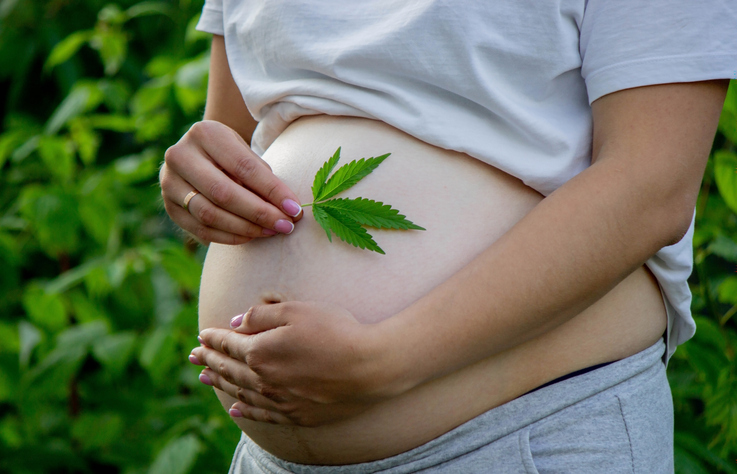While marijuana is often hyped for its medicinal benefits and recreational pleasures, it’s crucial to acknowledge that, like any substance, it can lead to dependency and addiction in some individuals. Contrary to popular belief, marijuana addiction is real. Based on data from the Substance Abuse and Mental Health Services Administration (SAMHSA), around 10% of individuals who engage in marijuana use develop an addiction. This risk escalates to 1 in 6 when marijuana use starts before the age of 18.
The Dangers of Marijuana
Marijuana addiction is characterized by compulsive, problematic marijuana use despite the negative consequences it may have on various aspects of life, such as relationships, work, and physical and mental health.
In recent decades, there has been a consistent increase in the THC content of marijuana. Present-day marijuana contains three times the concentration of THC compared to 25 years ago. As THC levels rise, so does the intensity of its impact on the brain, frequently resulting in a greater number of emergency room admissions.
While many consider marijuana to be a low-risk substance, its abuse can have detrimental physical and mental health effects, including:
- Respiratory issues like bronchitis and lung infections
- Increased risk of stroke and heart disease
- Impaired brain development in adolescents
- Increased risk of mental health issues such as depression, anxiety, psychosis
- Problems with cognitive functioning and memory
- Increased risk of addiction to other substances
- Social and occupational impairment
In addition, marijuana may act as a “gateway drug” for some, leading to experimentation with more dangerous drugs. And, despite arguments about its relative safety compared to other substances, marijuana addiction is disruptive when left untreated, affecting relationships, work, and overall well-being. Seeking treatment and support is crucial for anyone struggling with marijuana dependency to regain control and improve their quality of life.
Marijuana Use During Pregnancy
Using marijuana during pregnancy poses significant risks to both the mother and the developing fetus. Research indicates that marijuana use during pregnancy can lead to a range of complications, including:
- Premature birth
- Stillbirth
- Stunted fetal growth
- Impaired brain development in the fetus
The psychoactive compounds in marijuana can cross the placental barrier, exposing the fetus to its effects, which can disrupt normal development and increase the likelihood of long-term cognitive and behavioral issues for the child. Therefore, it is crucial for pregnant individuals to abstain from using marijuana to safeguard the health of both themselves and their unborn child.
Recognizing the Signs of Marijuana Addiction
Recognizing the signs of marijuana addiction is the first step toward seeking help. Symptoms may vary from person to person but commonly include:
- Increased tolerance, needing more marijuana to achieve the desired effects
- Withdrawal symptoms, such as irritability, anxiety, and insomnia, when attempting to quit
- Neglecting responsibilities and hobbies in favor of marijuana use
- Failed attempts to cut down or control use
- Using marijuana to cope with stress or negative emotions
Fortunately, there are effective treatments available for marijuana addiction, tailored to meet the individual needs of each person. Some approaches commonly used are:
- Therapy: Therapies such as cognitive-behavioral therapy (CBT) and motivational enhancement therapy (MET) help individuals address problematic marijuana use by exploring underlying motivations, triggers, and coping strategies.
- Support groups: Participating in support groups like Marijuana Anonymous or seeking support from peers who have gone through similar experiences can provide invaluable encouragement and understanding.
- Medication: There is no single medication used to treat marijuana addiction, but certain medications used to treat other substance use disorders or mental health conditions may be beneficial in managing withdrawal symptoms or co-occurring disorders.
- Lifestyle changes: Engaging in healthy lifestyle habits, such as regular exercise, adequate sleep, and stress management techniques, can support recovery by promoting overall well-being and reducing the likelihood of relapse.
- Holistic approaches: Practices such as mindfulness meditation, yoga, and acupuncture can complement traditional treatment methods by fostering self-awareness, stress reduction, and emotional regulation.
Navigating the path to recovery from substance use disorders, such as marijuana addiction, may present hurdles and occasional setbacks. However, it’s imperative to continue this journey with patience, self-kindness, and a readiness to seek assistance when necessary. Acknowledging and celebrating even the slightest achievements is crucial, as each advancement toward recovery represents a worthy accomplishment.
If you or someone you know is struggling with a substance use disorder, know that you’re not alone, and help is available. At Twin Lakes Recovery Center in Monroe, Georgia, we offer programs and services to put you on the path to a lasting recovery. To learn more about what we have to offer, please contact us today.




